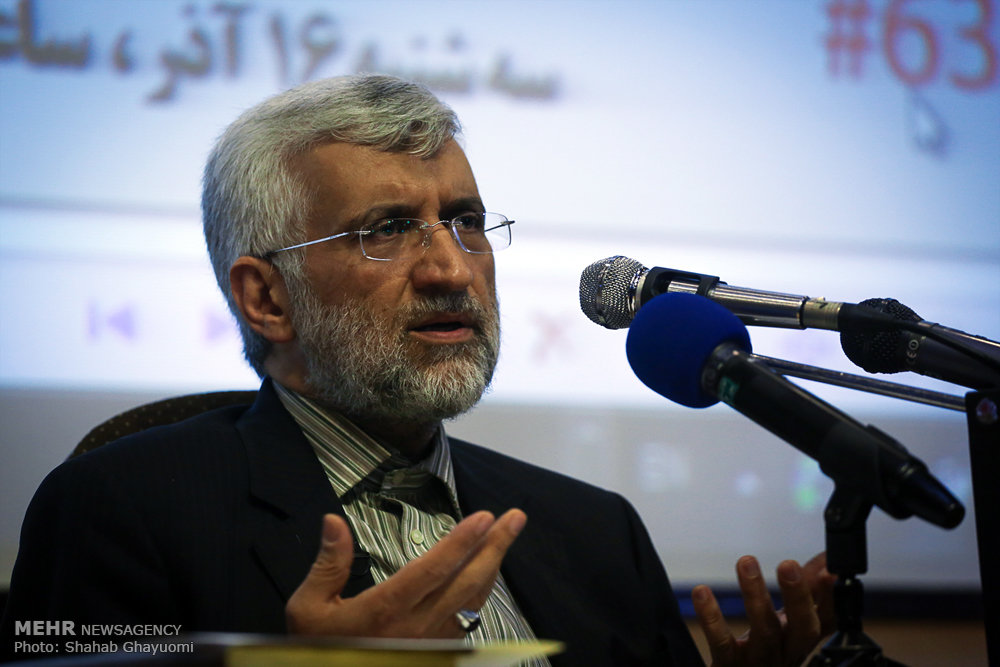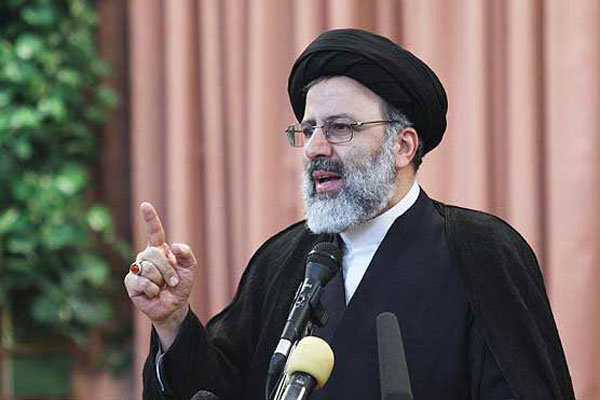The major speaker in a ceremony held on Thursday in Imam Khomeini (RA) Prayer Ground in Tehran was Seyed Ebrahim Raeisi, the Guardian of Astan Quds (Shrine of Imam Ali al-Reza) who addressed the crowd of participants; “the leadership of the System was the source of inspiration, and is a source of strength for the country; the December 30 rallies followed the example of Ashura of 680AD in refuting the seditionists out of their cocoon of their contrived plan to hit the Establishment,” he told the ceremony. “Young cohort and their resistance provides the nation with a power parameter, and they displayed huge potentials during the imposed war (1980-88); the US had not helped any nation out of suffering to salvation; rather, they had been working to weaken the system from within and during 2009 unrest, they were on a grave strategic error of judgment when they predicted collapse of the system,” he emphasized.
Raeisi pointed to the examples of inspiration by the revolutionary nation in Aleppo and in Al-Quds; “Iranians will follow the path of Imam Hussein (as) and will resist as he did,” he addressed the crowd.

Still in a related story, Saeid Jalili, former negotiator and Leader’s representative to the Supreme National Security Council addressed the participants in the ceremony in a mosque east of Tehran. Jalili believed that an example of seditionism would be to reverse the priorities; “the oil corruption and the notorious dossier Crescent is only second to for example, ban on music concerts in a far-flung city; the new version of seditionism is to deny the inherent abilities of a nation; it is to undermine the achievements of the nation; it is to deny that the nation would achieve nuclear knowledge; it is to justify the ways of the enemies and to dishearten the people,” Jalili emphasized.
“Their accomplices overseas would still be seditionist; in fueling Iranophobia; in warning the public about an impending war should certain path failed to be walked in foreign policy; seditionism is to pay astronomical salaries to a group of cronies while the same group is praised being the most exemplary forces loyal to the Revolutionary ideals; it is to have banks failing to manage the financial problems since the same cronies had plundered the resources by heavy loanings; seditionism is mismanagement of the economy; it is to invite foreign companies with the dashed hope of bringing some improvement to the hard-hit economy, and at the same time, to underestimate the domestic capabilities of the nation,” he lamented.
Elsewhere in a related event in desert city of Yazd, Mohsen Rezaei, presidential candidate in 2009 elections was the major speaker of the ceremony. Rezaei focused on the possible scenarios according to which the 2009 events would have been effectively controlled and prevented; “the criticizing candidates would still believe that no election fraud had been at work; however, two scenarios would be effective in placating the public demanding the recounting of votes; candidates should have come to Guardian Council to solve the differences; the second is the forces active in organizing unrest would force the candidates to accept the Leader’s recommendation; all these scenarios were abandoned for more unrest and turmoil in streets and to deprive the country of the normal political life and the ensuing economic damage of billions of dollars,” he told the crowd in Hazira Mosque in Yazd.
He criticized also some important figures of the Revolution especially Hashemi Rafsanjani to tacitly sympathize with the rogue candidates and not evidently and clearly condemning the street rallies in support of them. “In a smoky atmosphere to which the foreign media propaganda had added daily, to identify who was on the side of the truth and who was not had become very difficult and almost impossible,” concluded Mohsen Rezaei.
SH/3863167/3863161/3863124
